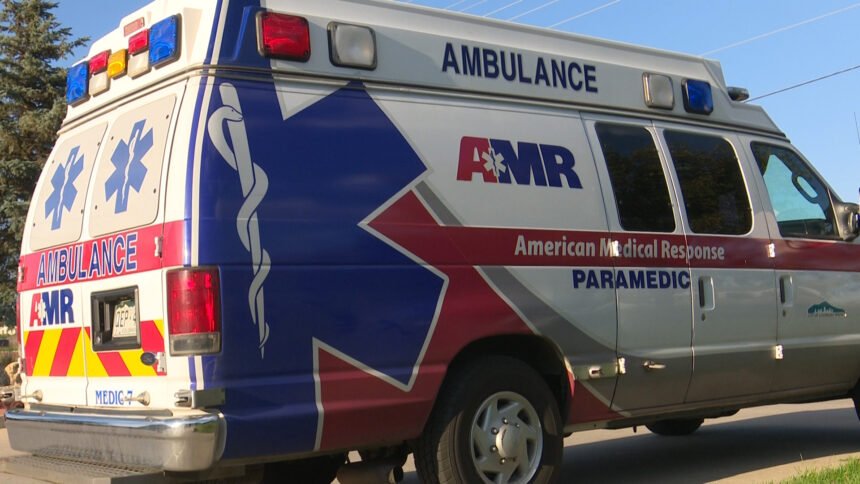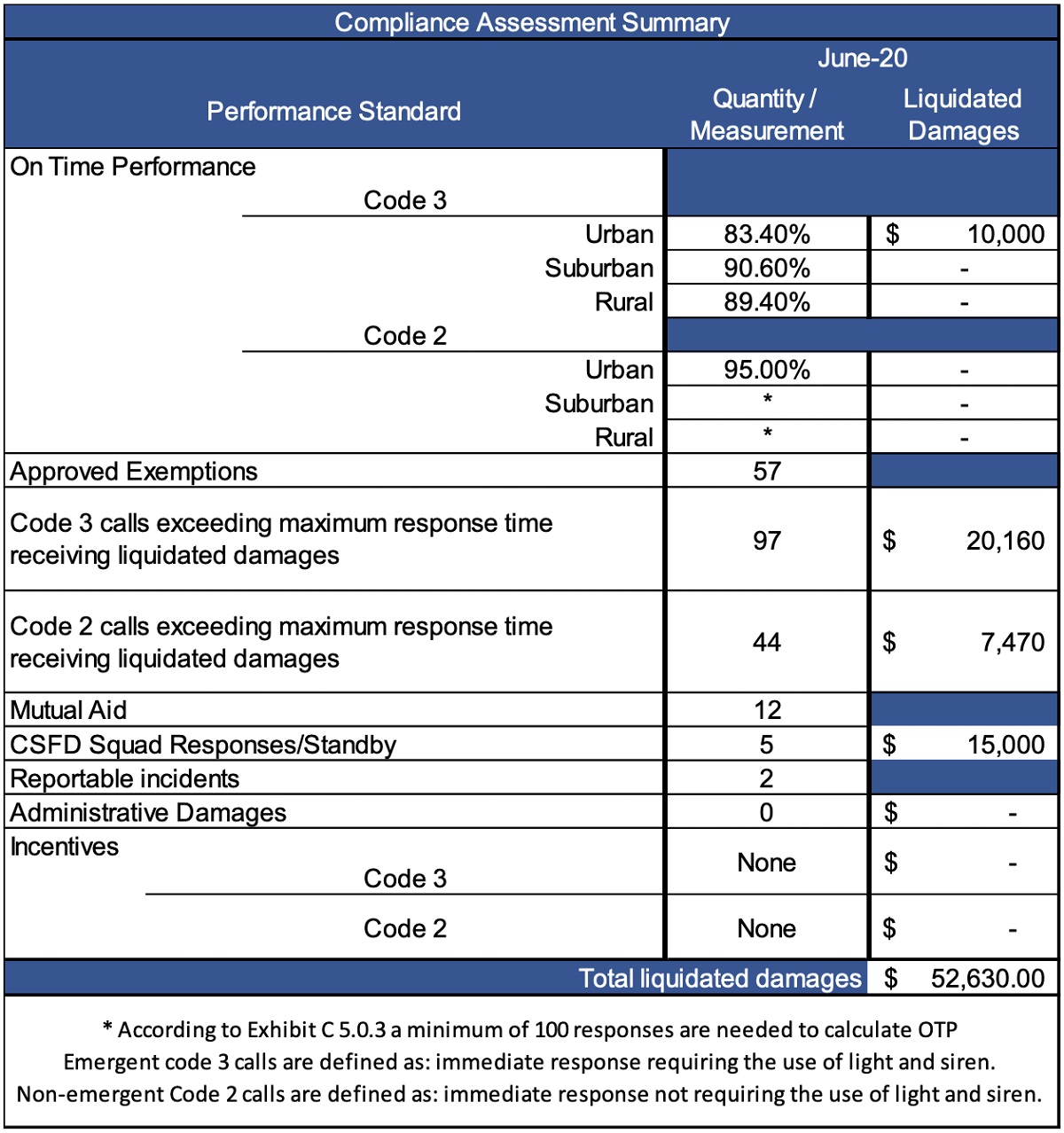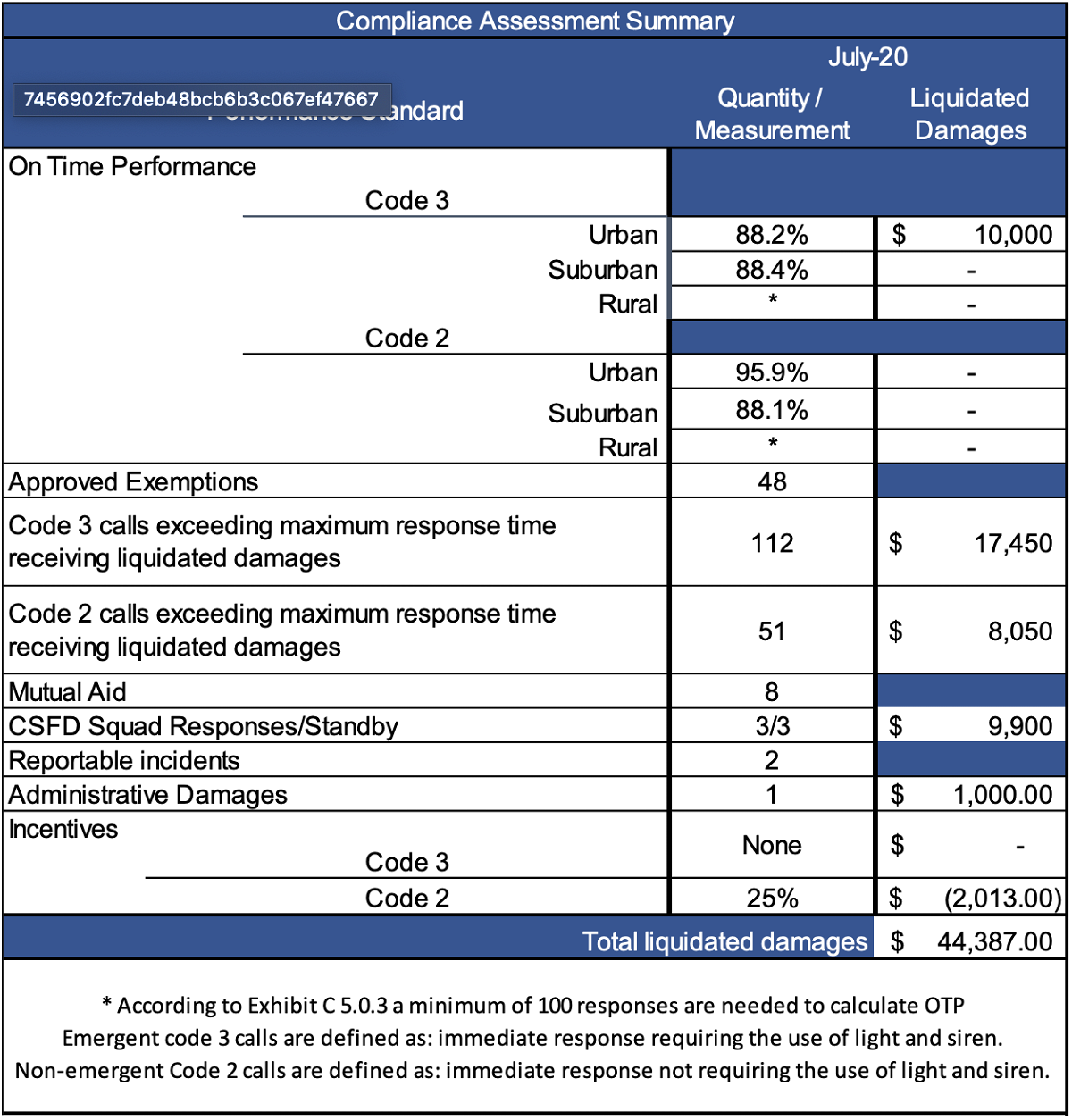Colorado Springs ambulance contractor under pressure to meet response times

COLORADO SPRINGS, Colo. (KRDO) — American Medical Response is back on track to meet compliance for ambulance response times in August, following two months of late fees to the city totaling nearly $100,000 in June and July.
Operations Manager Jesse Baker tells KRDO paramedics’ passion isn’t the problem. COVID-19 is.
“A particular challenge in implementing this new contract was COVID hitting right at the same time as entering a new contract,” Baker said. “It’s challenges I have never faced in almost 30 years of EMS.”
A new contract between AMR and the city of Colorado Springs began on April 1. Though AMR had the ambulance contract with the city previously, this new contract comes with new response time goals.
With Coloradans under a stay-at-home order in the spring, AMR met its compliance for ambulance response times in April and May. Baker acknowledges it’s partly because fewer calls were coming in.
Jim Webber, ambulance contract administrator for the city of Colorado Springs, explains that “on-time” varies between 8 and 16 minutes. The deadline depends on if the destination is urban or rural and whether or not sirens and lights are authorized to get there faster.
“They were able to meet April’s on-time performance, May’s on-time performance threshold,” Webber said. “They struggled a little bit in June and they struggled a little bit in July.”
Data from the city shows in June, AMR paid about $52,000 to the city in late fees. The same data shows 97 high priority calls were late. On June 3, someone waited 48 minutes for a ride to the hospital.

Baker explains one possible reason for the long wait times.
“When we have violent calls that we’re going on, we want to make sure that those scenes are safe for our providers to go into,” Baker said. “Sometimes waiting for CSPD to clear the scene for us to go into, extends that period of time.“
The following month, in July, AMR paid about $44,000 in late fees. One patient waited 40 minutes for an ambulance to arrive. That was one of 112 late high priority calls in July.

Though the data for August won’t be official for a few days, it points to improvement.
“Preliminarily, August, we are in compliance with the contract,” Baker said.
That means, despite the call volume increasing as Colorado gets back to business, ambulances were on-time 90% of the time.
“We’ve seen that improvement with response times,” Webber said. “AMR has been a good partner in that aspect and has added more resources.”
With lives on the line, AMR is working to make sure its August progress is sustainable long-term. Its ambulance response times will be reviewed each month throughout the five-year contract.
